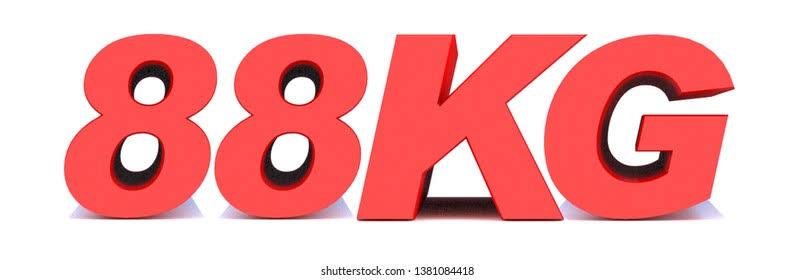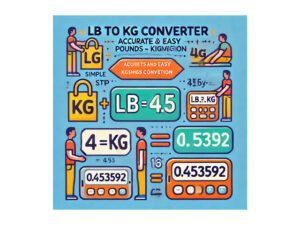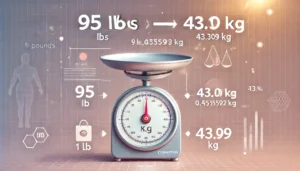Introduction: What Does 88 kg Mean for You?
So, you weigh 88 kg. What does that mean for your body, your health, and your daily life? Weight is just a number, but understanding what 88 kg represents can help you make informed decisions about your fitness, diet, and lifestyle.
Whether you’re wondering if this weight is healthy, how it impacts your body, or how to manage it, we’ve got you covered. This guide will break down everything you need to know in simple, easy-to-read language—no complicated medical jargon, just straight facts.
Is 88 kg a Healthy Weight?
1. Understanding BMI (Body Mass Index)
One of the most common ways to determine if 88 kg is a healthy weight is by checking your BMI (Body Mass Index). Here’s how you can calculate it: BMI=Weight (kg)Height (m)2BMI = \frac{\text{Weight (kg)}}{\text{Height (m)}^2}BMI=Height (m)2Weight (kg)
For example:
- If you’re 1.75 meters tall (5’9”), your BMI would be: 88(1.75×1.75)=28.7\frac{88}{(1.75 \times 1.75)} = 28.7(1.75×1.75)88=28.7 That’s in the overweight category (BMI between 25-29.9).
- If you’re 1.90 meters tall (6’3”), your BMI would be: 88(1.90×1.90)=24.4\frac{88}{(1.90 \times 1.90)} = 24.4(1.90×1.90)88=24.4 That’s within the healthy weight range (BMI between 18.5-24.9).
Key takeaway: Your height matters when determining if 88 kg is a healthy weight.
How Does 88 kg Affect Your Health?
Carrying 88 kg can have different effects depending on your height, muscle mass, and lifestyle.
1. If You Have More Muscle Than Fat
If your 88 kg comes mostly from muscle (like an athlete or bodybuilder), your body fat percentage is likely low, meaning you’re in great shape. Muscle is denser than fat, so someone muscular at 88 kg might look leaner than someone with higher fat levels.
2. If You Have a Sedentary Lifestyle
If you’re not active and have a higher body fat percentage, you may be at risk for:
- Heart disease
- High blood pressure
- Joint pain (especially in the knees and lower back)
- Type 2 diabetes
3. Energy Levels & Daily Activities
- If you carry extra fat, you might feel sluggish or tired more often.
- If you have muscle mass, you’ll likely feel strong and energetic.
- 88 kg can be ideal if you’re tall, but may be excess weight if you’re shorter.
Tips to Maintain or Manage Your Weight at 88 kg
1. Eat Smart, Not Less
- Focus on high-protein foods (chicken, fish, eggs, beans) to boost metabolism.
- Avoid processed foods and hidden sugars.
- Drink plenty of water to stay hydrated.
2. Move Your Body
- If you want to lose weight, aim for 30-60 minutes of cardio (walking, running, cycling) daily.
- If you’re maintaining, strength training can help build lean muscle.
3. Sleep & Stress Matter
- Lack of sleep can cause weight gain.
- Stress increases cortisol, making it harder to lose fat.
- Get at least 7-9 hours of good sleep each night.
4. Track Your Progress
- Weigh yourself weekly (not daily to avoid small fluctuations).
- Use a measuring tape—muscle gain might keep your weight stable but reduce inches.
- Take progress photos for motivation.
Conclusion: Is 88 kg the Right Weight for You?
At the end of the day, 88 kg isn’t just a number—it’s about how you feel in your body. Whether it’s healthy or not depends on your height, muscle mass, and lifestyle.
If you’re comfortable and active, then 88 kg might be perfect for you. If you feel tired, sluggish, or face health issues, then it might be time to make small, sustainable changes.
FAQs About 88 kg
1. Is 88 kg overweight?
It depends on your height and muscle mass. For someone shorter than 1.80m (5’11”), it may be overweight. If you’re taller, it could be a normal weight.
2. Can I be fit at 88 kg?
Absolutely! If your weight comes from muscle and not excess fat, you can be extremely fit at 88 kg.
3. How can I lose weight from 88 kg?
- Eat a balanced diet with high protein and fewer processed foods.
- Exercise regularly with cardio and strength training.
- Sleep well and manage stress to prevent weight gain.
4. What’s the ideal weight for my height?
Use a BMI calculator or consult a doctor to determine your ideal weight.
5. Does muscle weight more than fat?
Yes! Muscle is denser than fat, so someone with more muscle at 88 kg will look leaner than someone with more fat at the same weight.





